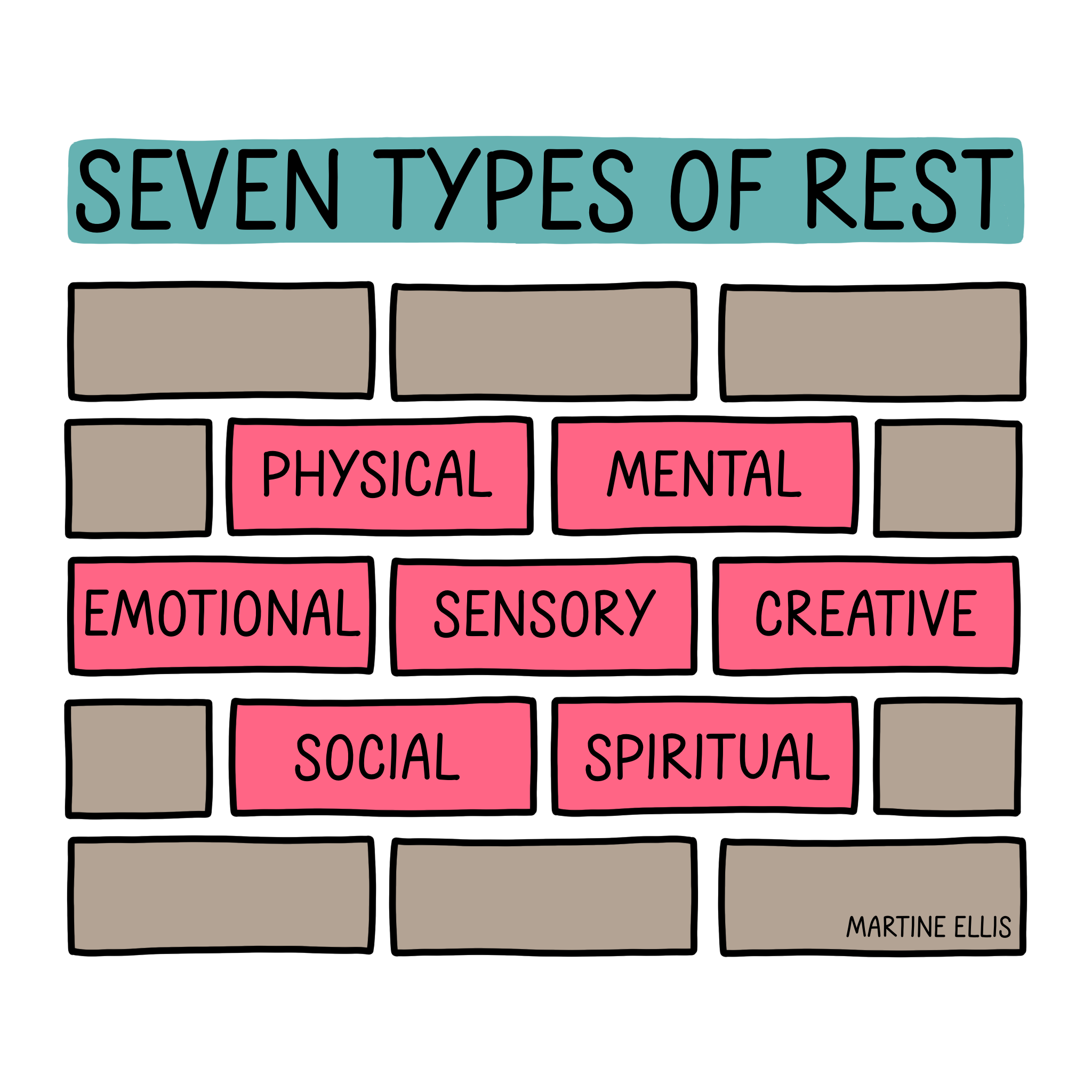Deliberate Rest
If you want to become an expert at something, hard work matters. Research suggests that it takes around 10,000 hours of deliberate practice to become an expert in a particular field.
We tend to focus on that part: deliberate practice (the work). But there’s another essential piece we often overlook: deliberate rest.
To rest well, we need to understand what "rest" actually means.
It isn't just sleep, and it isn't always still.
There are seven types of rest. Let's break them down:
Physical rest includes sleep and other ways of relaxing your body, such as yoga or a gentle walk.
Mental rest is about resting your mind; practices like meditation work for some, but it can be as simple as taking a break at work.
Emotional rest means different things to different people. For some, it will be having the freedom to express emotions. For others, it will be removing themselves from emotionally draining situations.
Sensory rest is taking time away from anything that overloads your senses, for example, reducing screen time or resting in a dark, quiet room.
Creative rest is often a pathway to creative inspiration, idea generation, and, for some, a profound sense of joy. This type of rest might include doing handmade crafts or listening to music.
Social rest, depending on your personality and needs, might be abstaining from all social interaction for a period or being with people who do not drain your social battery.
Spiritual rest helps you find meaning; for some, this could be prayer or being in a specific community.
Sustainable productivity isn’t just about how you work or do your deliberate practice—it’s about how you rest.
What if we planned our rest in the same way we planned our work?

